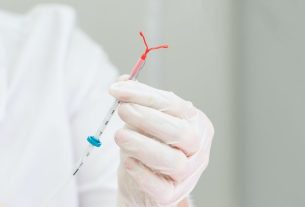Neurasthenia is a psychological disorder in which there are changes in the nervous system that lead to the appearance of symptoms such as chronic tiredness, weakness, headache, insomnia and bodily discomfort that have no apparent cause.
Neurasthenia is usually caused by a combination of genetic and environmental factors, such as a stressful routine or family problems, for example. Therefore, the diagnosis of this disorder is made by a neurologist or psychiatrist by evaluating the symptoms presented and excluding other situations that may have the same symptoms, such as generalized anxiety disorder.
Neurasthenia is treated by changing eating and lifestyle habits, such as avoiding the consumption of fatty foods and regular physical activity, for example, in addition to psychotherapy sessions and the use of antidepressant medications if necessary.

Main symptoms
The main symptoms of neurasthenia are:
- Headache;
- Physical and emotional exhaustion;
- Body pain;
- Increased sensitivity;
- Pressure and weight in the head;
- Ringing in the ear;
- Dizziness;
- Changes in sleep;
- Excessive tiredness;
- Difficulty relaxing;
- Difficulty concentrating;
- Numbness and tingling of the limbs;
- Anxiety or depression.
Symptoms of neurasthenia can appear at any time in life, being more common in people who have a stressful routine, sleep poorly or do not have good habits, such as excessive consumption of alcoholic beverages or fatty foods, for example.
How the diagnosis is made
The diagnosis of neurasthenia is made by a psychiatrist or neurologist by observing the symptoms described and presented by the person, in addition to excluding other diseases that may have the same symptoms, such as muscular or neurological diseases.
In addition, the doctor may recommend imaging or laboratory tests, as well as investigating personal and family history to rule out other possible chronic diseases.
How the treatment is carried out
The treatment of neurasthenia must be done through therapy, in which the psychiatrist seeks to understand the reason for the neurasthenia, help the person to organize themselves, stimulate self-esteem and confidence, in addition to helping in the search for activities that promote relaxation.
The psychiatrist may also recommend the use of antidepressant medications, as they stimulate the production and release of hormones responsible for well-being, which should be recommended and used according to the doctor’s instructions. See which antidepressant medications are most recommended.
Changing habits is important not only in the treatment of neurasthenia, but also in its prevention. Therefore, it is important that the diet is balanced and rich in fiber, vegetables and fruits, in addition to avoiding alcoholic beverages, fatty foods and cigarettes, for example. It is also recommended to practice regular physical activities, as this allows you to naturally stimulate the production of hormones responsible for a feeling of well-being, helping you relax.
Bibliography
- BHOLA, Poornima; CHATURVEDI, Santosh K. Neurasthenia: tracing the journey of a protean malady. Int Rev Psychiatry. Vol 32. 5 ed; 491-499, 2020
- JIMENEZ, Miguel M.; BOSQUET, Francisco JS Neurasthenia and Fibromyalgia: The Link between the Nervous System and Culture in Complex Clinical Entities. IN-KEYS of thought. Vol 52. 22 ed; 51-74, 2017
- OVERHOLSER, James C.; BEALE, Eleanor E. Neurasthenia: Modern Malady or Historical Relic?. J Nerv Ment Dis. Vol 207. 9 ed; 731-739, 2019

Sign up for our newsletter and stay up to date with exclusive news
that can transform your routine!
Warning: Undefined array key "title" in /home/storelat/public_html/wp-content/plugins/link-whisper-premium/templates/frontend/related-posts.php on line 12
Warning: Undefined array key "title_tag" in /home/storelat/public_html/wp-content/plugins/link-whisper-premium/templates/frontend/related-posts.php on line 13




